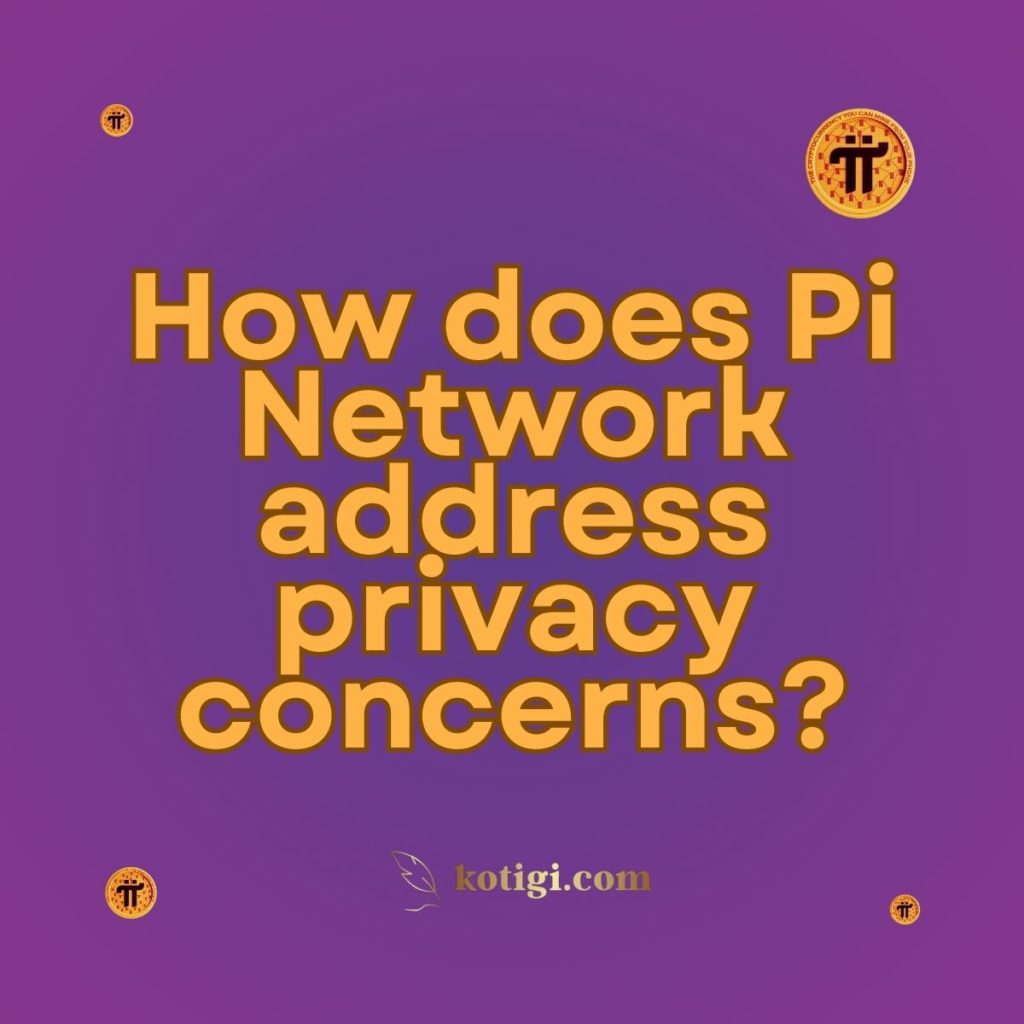
How does Pi Network address privacy concerns?
Pi Network is committed to addressing privacy concerns, which are crucial for building trust and ensuring the security of its users. In a digital age where data privacy is increasingly important, Pi Network has implemented several measures to protect the personal information of its users and maintain the confidentiality of their activities within the network.
1. Data Encryption
Pi Network employs robust encryption techniques to safeguard users’ data. Encryption ensures that any data transmitted within the network is protected from unauthorized access. Whether it’s personal information, transaction details, or communication between users, Pi Network uses advanced encryption protocols to secure this data. This approach minimizes the risk of data breaches and unauthorized access, ensuring that users’ privacy is maintained.
2. Minimal Data Collection
One of the key ways Pi Network addresses privacy concerns is by adhering to a principle of minimal data collection. The network only collects the data necessary for its operations, such as basic identification information required for KYC (Know Your Customer) verification and account security. By limiting the amount of data collected, Pi Network reduces the potential for misuse or exposure of personal information. This approach aligns with best practices in data privacy, where less data collection generally means fewer risks.
3. Decentralized Data Storage
As Pi Network moves toward decentralization, it aims to implement decentralized data storage solutions. Decentralized storage disperses data across multiple nodes rather than storing it in a single, centralized location. This method enhances privacy by making it more difficult for any single entity or hacker to access large amounts of data. Decentralized storage also aligns with the broader principles of blockchain technology, where user autonomy and data security are prioritized.
4. User-Controlled Privacy Settings
Pi Network allows users to have control over their privacy settings, enabling them to choose how much information they want to share with others. For example, users can manage their visibility within the network, deciding whether or not to display certain personal details to their contacts or the broader Pi community. By giving users control over their privacy preferences, Pi Network empowers them to protect their own data according to their comfort level.
5. Transparent Privacy Policies
Transparency is key to building trust, and Pi Network is committed to being clear about how it handles user data. The network’s privacy policy outlines what data is collected, how it is used, and the measures taken to protect it. This transparency helps users understand the network’s data practices and makes informed decisions about their participation. By being upfront about its privacy policies, Pi Network fosters a sense of trust and accountability.
6. Compliance with Global Privacy Regulations
Pi Network aims to comply with global privacy regulations, such as the General Data Protection Regulation (GDPR) in Europe and similar laws in other regions. Compliance with these regulations ensures that Pi Network adheres to high standards of data protection, providing users with rights over their personal data, such as the right to access, correct, or delete their information. This legal compliance further strengthens the network’s commitment to user privacy.
7. Secure KYC Process
The Know Your Customer (KYC) process is crucial for verifying user identities, but it also raises privacy concerns. Pi Network addresses these concerns by implementing a secure KYC process that protects user data. The process is designed to collect only the necessary information for identity verification and store it securely. Additionally, KYC data is handled with strict confidentiality to ensure that users’ sensitive information is not exposed or misused.
8. Ongoing Security Audits
To continually address privacy concerns, Pi Network conducts regular security audits and assessments. These audits help identify potential vulnerabilities and ensure that the network’s privacy measures are up to date with the latest security standards. By proactively addressing potential privacy risks, Pi Network demonstrates its commitment to maintaining a secure and private environment for its users.
Conclusion
Pi Network takes privacy concerns seriously by implementing a range of measures designed to protect user data and ensure the confidentiality of their activities within the network. From data encryption and minimal data collection to user-controlled privacy settings and compliance with global regulations, Pi Network is dedicated to creating a secure and private platform. As the network continues to evolve, it remains committed to maintaining the highest standards of privacy for its growing community of users.





